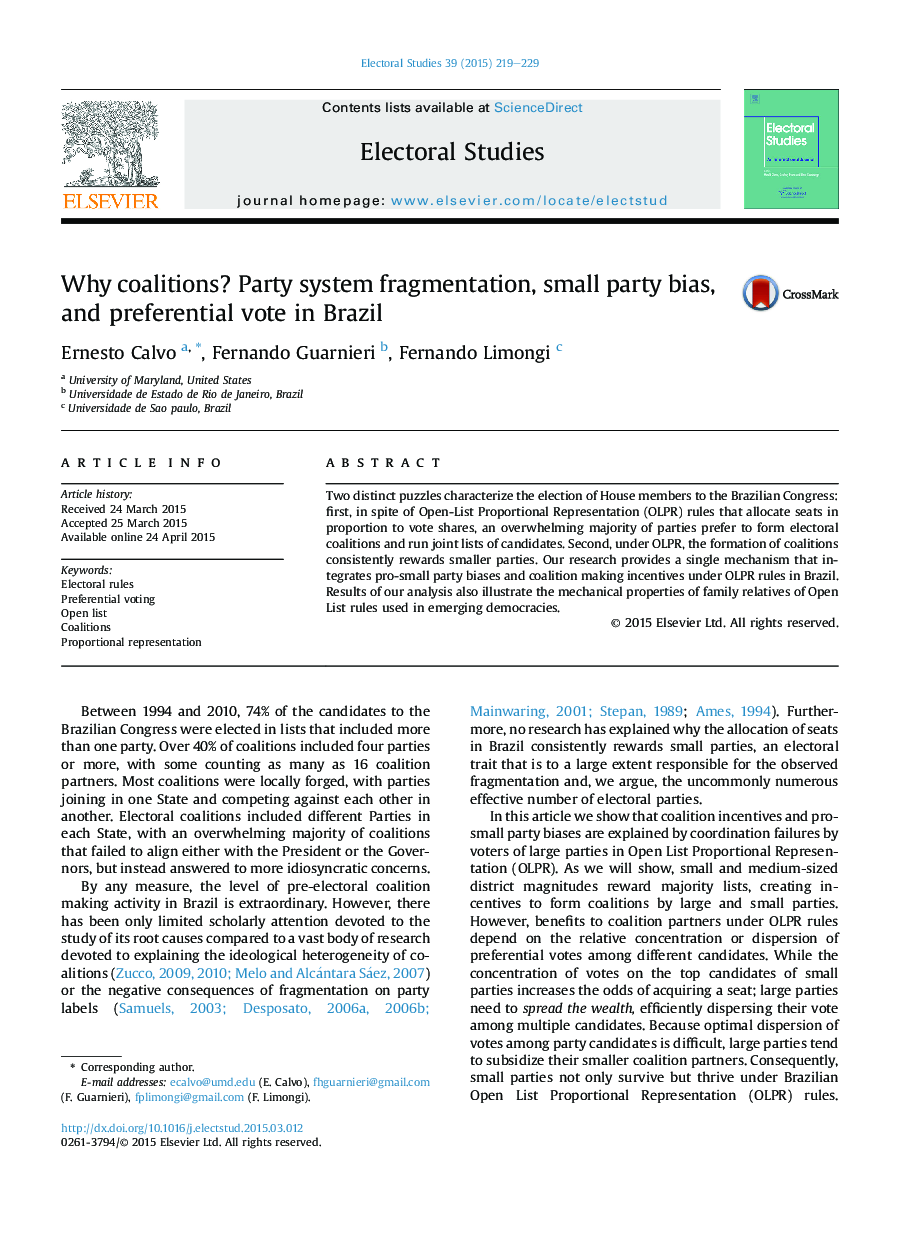| Article ID | Journal | Published Year | Pages | File Type |
|---|---|---|---|---|
| 7464145 | Electoral Studies | 2015 | 11 Pages |
Abstract
Two distinct puzzles characterize the election of House members to the Brazilian Congress: first, in spite of Open-List Proportional Representation (OLPR) rules that allocate seats in proportion to vote shares, an overwhelming majority of parties prefer to form electoral coalitions and run joint lists of candidates. Second, under OLPR, the formation of coalitions consistently rewards smaller parties. Our research provides a single mechanism that integrates pro-small party biases and coalition making incentives under OLPR rules in Brazil. Results of our analysis also illustrate the mechanical properties of family relatives of Open List rules used in emerging democracies.
Related Topics
Social Sciences and Humanities
Social Sciences
Geography, Planning and Development
Authors
Ernesto Calvo, Fernando Guarnieri, Fernando Limongi,
